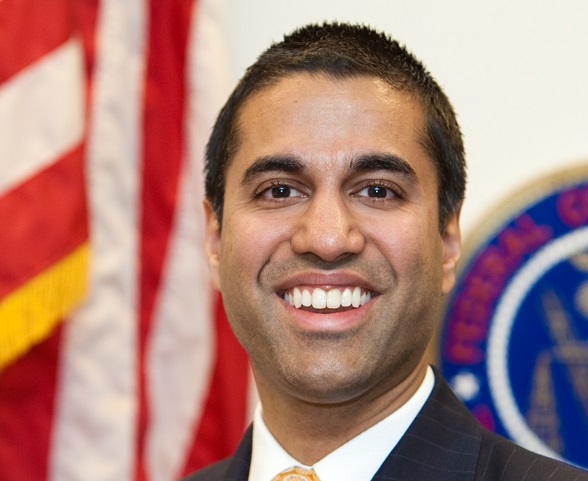Pai Praises ISPs' Pandemic Response to International Audience
Cites investment prompted by deregulation as one reason

The smarter way to stay on top of the multichannel video marketplace. Sign up below.
You are now subscribed
Your newsletter sign-up was successful
ISPs' ears must have been burning Tuesday (Sept. 1) as FCC chairman Ajit Pai praised them for the performance of their networks during the pandemic and that investments they had made in those networks that paved the way for that performance.
Pai was providing remarks for a virtual ITU global regulator symposium.
Asked to address the experience of dealing with the pandemic, Pai said the headline was that America's communications networks had performed extremely well.
"Our wired and wireless networks handled this surge without any significant service disruptions or declines," said, citing Ookla figures showing that between March 2 and July 13, average U.S. fixed broadband speeds were actually up 10%, while average mobile broadband speeds were up by 4%.
Why was this the case in the face of increased demand from a stay-at-home populace? He said part of it was the hard work and creativity of carriers. "As one example, from March to July, Comcast, our nation’s largest cable operator, averaged nearly 900 network improvements per week, on top of over 450 improvements to its core network. Because of these efforts, they added more than 128 Terabits of capacity."
But beyond that, he said, "I would argue that the biggest reason U.S. carriers were equipped to handle the unexpected surge in traffic was the investments they made long before anybody had ever heard of COVID-19. Over the past couple of years, we’ve seen network investment hit levels that our nation hadn’t seen for over a
decade."
As he has said before, Pai credited the FCC's elimination of net neutrality rules in 2017 for that increase in investment. "I would also point out that broadband investment declined in the U.S. in 2015 and 2016 (two years when the Internet was treated like a public utility)—the first time that had happened outside of a recession in the Internet era," he added to push the point.
He also pointed out that ISPs had responded when the FCC asked them to voluntarily keep subs connected during the economic hit of COVID-19. "By working with industry cooperatively, we made progress much more quickly than we would
have had we pursued command-and-control regulation," he said.
Pai suggested the takeaway for regulators is that "unleashing private markets often can be the most effective way to advance the public interest."
The smarter way to stay on top of the multichannel video marketplace. Sign up below.
Contributing editor John Eggerton has been an editor and/or writer on media regulation, legislation and policy for over four decades, including covering the FCC, FTC, Congress, the major media trade associations, and the federal courts. In addition to Multichannel News and Broadcasting + Cable, his work has appeared in Radio World, TV Technology, TV Fax, This Week in Consumer Electronics, Variety and the Encyclopedia Britannica.

